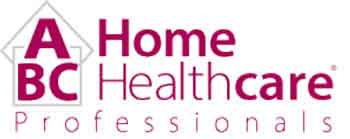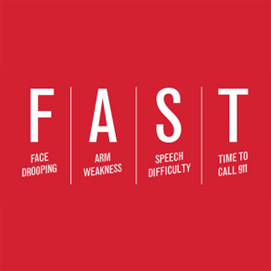Stroke Awareness – Know the signs and act – F.A.S.T.
A stroke occurs when the blood supply to part of the brain is interrupted or reduced, depriving brain tissue of essential oxygen and nutrients. Without oxygen, brain cells begin to die within minutes. Because of this, immediate medical attention is crucial.
Strokes are serious medical emergencies that can happen to anyone at any time. Recognizing the signs early and acting quickly can save a life and minimize long-term damage.
WHAT IS F.A.S.T.
F.A.S.T. is an easy to remember acronym that can help you recognize the signs and symptoms of a stroke.
F – FACE DROOPING
Because a stroke means the blood supply to the brain is being compromised, depending on which side of the brain is not receiving adequate blood flow, a stroke victim will show signs of a drooping or twisting face on the side of their face where blood is not flowing. If you notice this – the American stroke Association suggests asking the person to smile. Is their smile uneven? If they are experiencing stroke, they may have trouble smiling.
A – ARM WEAKNESS
Because of the lack of blood flow, a stroke victim may have trouble raising or lifting their arm(s). It may appear limp. American stoke association suggests asking the person to lift both arms. If they are unable to, they be experiencing a stroke.
S – SPEECH DIFFICULTY
According to the American Stroke Association, The parietal lobe is the part of the brain responsible for understanding speech and expression of thoughts. If blood flow to the parietal lobe is compromised during a stroke, a person could have a hard time speaking.
T – TIME TO CALL 911
If a person is experiencing a stroke, it is a severe medical emergency where the success of it can depend largely on the proactive nature and immediate action of those who are with a stroke victim. If you sense any of the F.A.S.T. symptoms, react immediately and call 911.
With a stroke every minute counts. Remember F.A.S.T. and know the signs. For one of our ABC clients, the use of F.A.S.T. became a life changing moment when Maureen Willard, a homemaker with ABC Home Healthcare realized the woman she was caring for was having a stroke. When we spoke with Maureen after the event she said, “I remembered the FAST rule from my training. When I saw her (client’s) smile was not normal and noticed her speech was off, I knew I had to act quickly.” Maureen called 911 right away. The doctors credit Maureen’s early recognition of the stroke symptoms and getting help FAST as a key factor in the client’s ability to make a full recovery. The client’s family is so grateful knowing that Maureen saved their mother from potentially severe brain damage.
When it comes to stroke, awareness isn’t just for healthcare professionals—it’s for all of us. acting F.A.S.T. could be the difference between recovery and lifelong disability—or even life and death.


